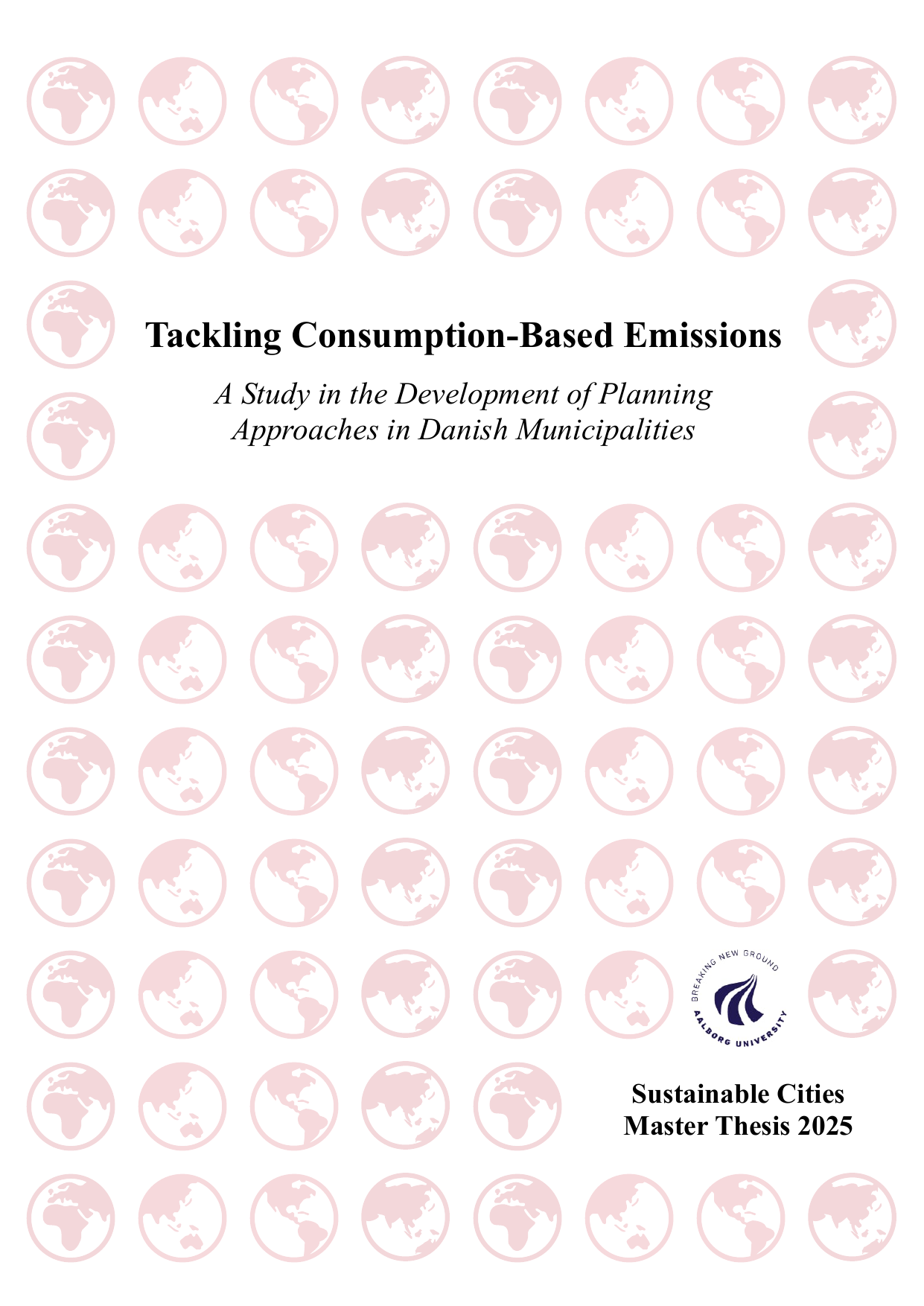
Tackling Consumption-Based Emissions - A Study in the Development of Planning Approaches in Danish Municipalities
Term
4. term
Education
Publication year
2025
Submitted on
2025-05-27
Abstract
This thesis explores Danish municipal climate action planning with a focus on consumption-based emissions (CBE). Although all municipalities have developed climate action plans, CBE have not been systematically addressed. A significant amount of Denmark’s carbon footprint is thus overlooked. Based on initial research, it is assumed that conventional climate planning approaches are not equipped to confront the cultural, political, and systemic challenges associated with CBE. The aim of this thesis is to answer the following problem formulation: How can Danish municipalities enhance transition toward tackling consumption-based emissions (CBE) in climate plans? The novelty in the thesis lies in perceiving climate planning as a social learning process. Inspired by critical utopian action research, the thesis both analyzes and engages with possibilities of change. Supplemented by a theoretical foundation consisting of New Institutionalism and Transition Theory, possible pathways for new planning practices are recommended. The empirical foundation is based on three case municipalities and analyzed through the lens of Scott’s Three Pillars of Institutions. The multiple case study is supplemented by engaging key actors in a visioning process. The thesis introduces a Transition Framework for Climate Planning Paradigms outlining five paradigms: Supply Approach, Efficiency Approach, Decarbonization Approach, Circular Approach, and Justice-Centered Approach. While the first three paradigms are present in practice, the latter two remain mainly theoretical and rhetorical. Out of the five paradigms, CBE are only tackled systematically in the Circular Approach and Justice-Centered Approach. Findings reveal lock-ins such as one-dimensional focus on emissions and technical solutions, silo-thinking, political resistance, and norms underpinning consumerism and local growth. However, opportunities exist in adopting cross-disciplinary collaboration, vision-led approaches, expanded data sets, and redefined planning roles involving advocacy and educational elements. The thesis concludes with actionable recommendations aimed at enabling radical shift in fundamental values and approaches to climate planning required to integrate CBE. Furthermore, the recommendations contain a refined version of the Transition Framework for Climate Planning Paradigms based on findings and insights developed throughout the thesis on future possibilities for tackling CBE.
Keywords
Documents
